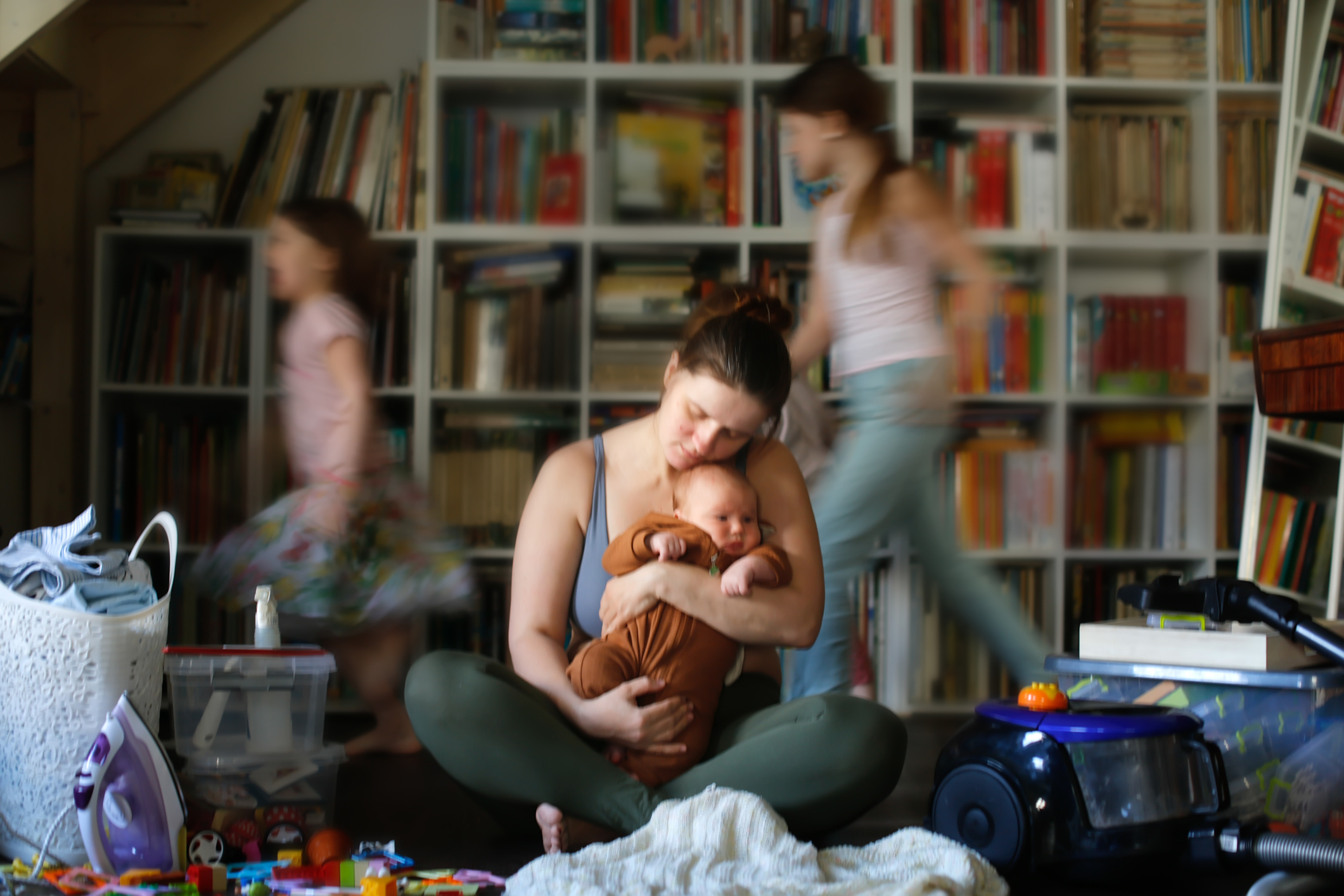Our nation’s priority should be fixing its men.
Learned Thanklessness

Liberal feminists denigrate motherhood, then act surprised when motherhood becomes low-status.
With each year that passes since Bethany Mandel wrote that “Modern Motherhood has a Major PR Problem,” the truth of the claim becomes clearer. Earlier this month, the United Kingdom was meant to celebrate Mother’s Day. While flowers were quietly distributed to the women of TERF island by those who retain some sense of honor about the thing, the online world exploded with commentary from professional chatterboxes about just how horrible motherhood really is.
Dr. Jessica Taylor, a British psychologist and author, wrote a thread with the purpose of “acknowledg[ing] how many women actually regret and resent motherhood.” She goes on: “When they had children, they certainly didn’t plan on becoming everyone’s live-in slave, cook, cleaner, secretary, referee, alarm clock, laundrette, shopper, counsellor, nurse, and emotional punch bag.”
The comment bears striking resemblance to the lyrics of a song which has simultaneously gone viral on TikTok, “labour” by Paris Paloma. The song goes: “You make me do too much labour, all day every day, therapist, mother, maid, nymph, then a virgin, nurse, then a servant, just an appendage, live to attend him, so that he never lifts a finger, 24/7 baby machine, so he can live out his picket fence dream, it’s not an act of love if you make her, you make me do too much labour.”
Aside from palpable grievance, a couple things stand out about Taylor, Paloma, and others in this perennially dissatisfied Greek chorus. Most immediately striking is their implicit contempt for the day-to-day activities that make life happen. Of course, despite their constant self-congratulation for “breaking barriers,” this complaint is far from an innovation. Derogatory attitudes toward general care work, motherhood, homemaking, and childrearing find a legacy among early second-wave feminists like Betty Friedan, who successfully reframed the role and work of the homemaker as lowly and unworthy of educated women—therefore popularizing an attitude toward other, less erudite women that we can rightfully identify as misogyny. As writer Tara Ann Thieke puts it: “American media’s most successful product is a mindset which turns the basic stuff of life into an evil that entitles its holders to endless resentment.”
Women’s resentment toward housework may arise from two sources: first, a deep shame arising from a sense of one’s own incompetence. The current generation of boss babes learned from an early age how to meet deadlines, how to communicate like a human resources drone, how to do “STEM stuff,” how to network, how to optimize a resume and negotiate a paycheck. Few had the opportunity to learn how to hold a baby. Many never held one before our own. No one taught the girl bound for medical school how to talk a toddler through a tantrum, much less civilize one. Young women can make a five year career plan, but can we structure our chores throughout the day to accommodate endless piles of kid laundry, prepare healthy meals for many people at a time, or take care of a sick family?
Not only did no one teach young women these things, Millennials’ own mothers, having passively imbibed the sentiments of second-wave feminism, actively subverted any notion that these things were worthy of doing in the first place. Here lies the second source of resentment: the widespread belief that to perform work below one’s pay grade is to lower oneself entirely. If housework is simply below the ambitious woman, then the ambitious woman indeed lowers herself to do it.
If women of the 1950s were legitimately burdened by the isolating and overwhelming work of maintaining a home, which had indeed grown isolated in the postwar suburban explosion, how were they and their daughters to feel with the additional burden of being looked down upon by more “exceptional” women, thankless men, and, eventually, society at large? How, years later, after the skills needed to manage a household had been rendered unworthy of passing to one’s children, would young women cope? Of course, they’d struggle.
One of the great incongruities of the feminist inheritance is this tendency to exacerbate the very conditions that allegedly launched the movement in the first place. Taylor and Paloma now bemoan that they as mothers are meant to carry out the complicated and manifold duties usually attendant to motherhood, but it is their forebears who, with the help of mass media, belittled such duties so relentlessly in the public conscience. Liberal feminists are right to feel minimized and overwhelmed by the task of motherhood in a culture that looks down on mothers. The irony remains that they desperately want to stay out of the very bed they made (or rather, won’t make).
The American Mind presents a range of perspectives. Views are writers’ own and do not necessarily represent those of The Claremont Institute.
The American Mind is a publication of the Claremont Institute, a non-profit 501(c)(3) organization, dedicated to restoring the principles of the American Founding to their rightful, preeminent authority in our national life. Interested in supporting our work? Gifts to the Claremont Institute are tax-deductible.
Homemaking is a daily battle for self-governance in an increasingly hostile world.
Exploring the Democrats’ chokehold on modern women.
A subversive message for Mother's Day
On mothers and the mother of God.
Declining American fertility signals a psychological cost for women.






